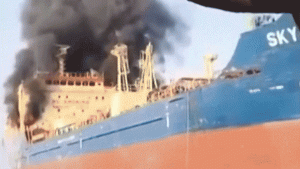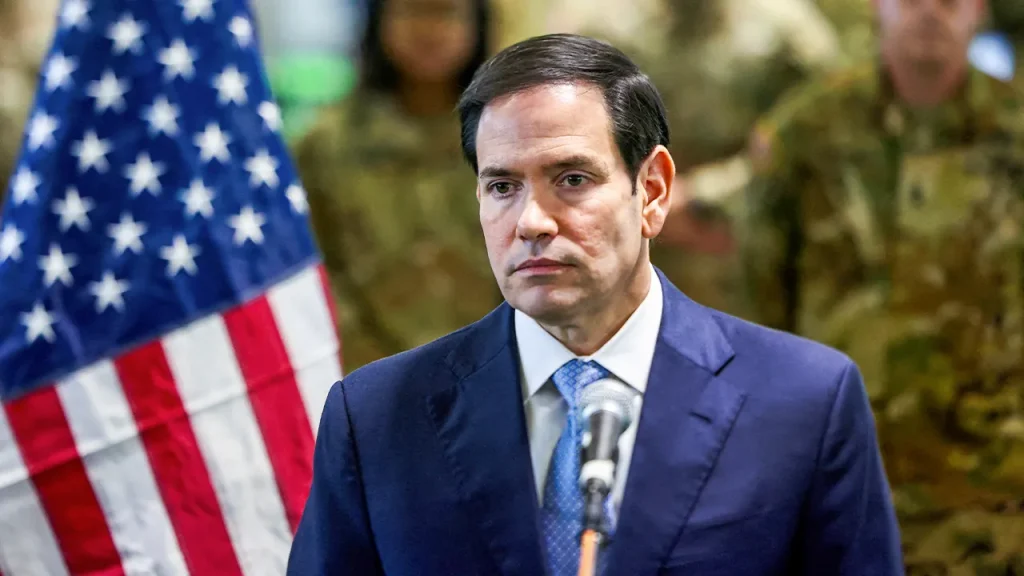Rubio Takes Strong Stance Against UNRWA in Gaza Ceasefire Implementation
During his recent visit to Israel, Secretary of State Marco Rubio made his position on the United Nations Relief and Works Agency for Palestine Refugees (UNRWA) abundantly clear. Following Vice President JD Vance’s departure, Rubio visited the newly established Civil-Military Coordination Center (CMCC) in southern Israel, which will serve as the central hub for Gaza stabilization efforts under the U.S.-brokered ceasefire agreement. Speaking from this facility, Rubio stated unequivocally that UNRWA would not participate in delivering humanitarian aid to Gaza, declaring that “UNRWA became a subsidiary of Hamas.” This bold stance highlights the growing tension between the controversial UN agency and both U.S. and Israeli authorities, especially in the wake of the October 7, 2023, attacks.
UNRWA, however, has pushed back strongly against this exclusion. In a public statement on social media, the agency emphasized its extensive logistical network and established trust within Gaza, asserting that it is uniquely positioned to manage aid distribution based on vulnerability assessments and clear criteria. “Our teams are ready, inside and outside Gaza. Let us work,” the agency pleaded. This plea comes as the CMCC begins its operations as part of the ceasefire implementation, with a sophisticated operations floor designed to track developments in Gaza in real-time. The center represents a significant American commitment to overseeing the peace process and humanitarian response in the region, but the exclusion of UNRWA from these efforts signals a profound shift in how aid will be delivered to Palestinians.
The controversy surrounding UNRWA has intensified significantly since October 7, with the Trump administration taking a particularly firm stance against the organization. In February, President Trump issued an executive order reaffirming the U.S.’s commitment not to fund UNRWA, citing reports that the agency had been “infiltrated by members of groups long designated by the Secretary of State as foreign terrorist organizations.” The order specifically mentioned allegations that UNRWA employees were involved in the Hamas attack on Israel. These concerns stand in stark contrast to UN Secretary-General António Guterres’s statements during the UN General Assembly last month, where he defended UNRWA as having made “invaluable contributions to development, human rights, humanitarian action, and peace and security, including for Israel,” and described the agency as “vital to any prospects for peace and stability in the region.”
The rift deepened in April 2025 when the International Court of Justice demanded that Israel work with UNRWA, a requirement that Washington supported Israel in rejecting. The U.S. backed Jerusalem’s position that it was under no obligation to work with the agency and had “ample grounds to question UNRWA’s impartiality.” This international legal confrontation highlights how the controversy over UNRWA has evolved from a bilateral dispute into a significant point of contention in international forums, with major powers taking opposing sides. The disagreement reflects broader tensions about how humanitarian aid should be delivered in conflict zones and who should be trusted to provide it, especially in situations where terrorist organizations are alleged to have compromised aid infrastructure.
In August 2024, UNRWA announced the conclusion of an investigation by the Office of Internal Oversight Services into Israeli claims that its staff participated in the October 7 attacks. The investigation, which examined 19 UNRWA staff members, resulted in nine terminations based on evidence that “could indicate” involvement in the attacks. For one staff member, no evidence was found to confirm involvement, while in nine other cases, the investigation determined that “the evidence obtained by OIOS was insufficient” to prove participation. These findings have done little to resolve the controversy, with critics arguing that the investigation confirms Israel’s allegations about UNRWA being compromised, while defenders suggest that the limited number of confirmed cases does not justify excluding the entire organization from humanitarian operations in Gaza.
As the U.S.-brokered ceasefire moves forward, the question of UNRWA’s role—or lack thereof—in Gaza remains a contentious issue that could affect both the implementation of the agreement and the broader prospects for lasting peace. The establishment of the CMCC represents a significant American investment in stabilizing Gaza and ensuring the ceasefire holds, but the exclusion of UNRWA signals a fundamental change in how the international community approaches humanitarian assistance in the region. With Rubio’s forceful rejection of any UNRWA involvement, the Trump administration appears committed to finding alternative channels for aid delivery that bypass the controversial agency. This approach represents a significant departure from previous humanitarian interventions in Gaza and raises important questions about how effectively aid can be distributed without utilizing UNRWA’s extensive infrastructure and local knowledge. As the ceasefire implementation proceeds, the international community will be watching closely to see whether this new approach can effectively address the humanitarian needs of Gaza’s population.














